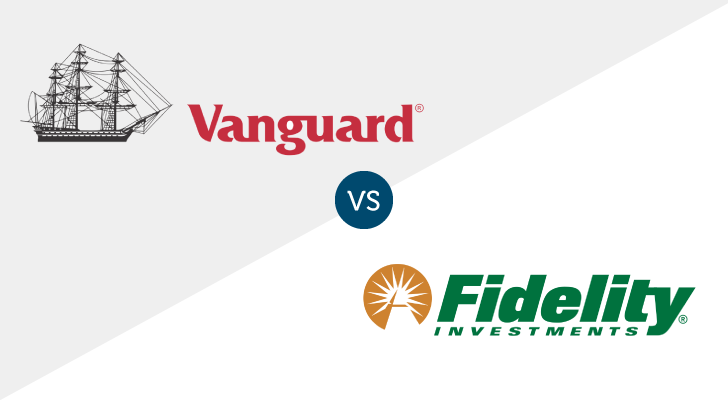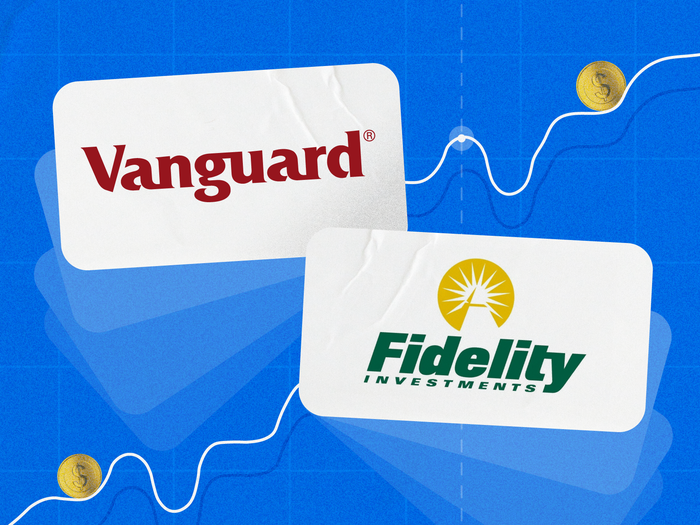Introduction
When choosing a place to keep their money or an investment firm, today's investors have a wide variety of options. However, not all platforms for trading stocks and mutual funds are created equal; therefore, selecting one tailored to your specific requirements is essential. For instance, someone actively trading may be interested in a platform that provides access to insider notes and screeners that can be customised. Still, somebody investing for retirement may be content to forego bells and whistles.
Fidelity vs. Vanguard are two of the most well-known and successful investing companies that have endured the test of time. These companies offer diverse investment options, so they appeal to many investors. In general, Vanguard adheres to a more conventional strategy of investing known as buy-and-hold. In contrast, Fidelity caters to customers who want a more individualised or hands-on investment experience.
Why We Chose It
With more than 80 years of experience in the industry, T. Rowe Price is a well-known and highly regarded name in the retirement planning field. Your employees will have access to more than one hundred different mutual funds and a wide variety of funds offered by other companies thanks to this plan, which gives them the flexibility to invest however they see fit. T. Rowe Price offers a wide range of investment options, one of the company's most notable advantages. You can use it to provide a 401(k) plan, as well as a 457(b) plan, a 403(b) plan, or even a defined benefit plan for your employees. Employers, including state and local government agencies, and specific charitable organisations, may be eligible to offer tax-deferred 457(b) plans to their employees.
Features
On their respective websites, the two businesses provide a wealth of educational content concerning retirement savings, asset allocation, compounding returns, and the fundamentals of funds. Vanguard offers more specialised resources that are catered to particular circumstances, whereas Fidelity's user interface is more organised, making it easier to navigate. Each provides straightforward rollover options for inactive 401(k) funds from prior employment and one-on-one phone consultations and support with opening new accounts. Fidelity maintains several investment centres in most major metropolitan areas and offers no-cost investment seminars covering a wide range of topics, from the fundamentals of personal finance to sophisticated techniques for income diversification in retirement.

Vanguard provides clients access to personal advisors who are available for investment discussions through phone or email and keep detailed client profiles. The websites of both businesses and the services they offer have exceptionally high levels of user-friendliness. The most crucial thing for you to do as a customer is to figure out which features are the most important to you, what kind of cash you're searching for, and how much everything will cost.
Performance And Cost
Vanguard, which had its start as a pioneer of index funds, now provides investors with access to a comprehensive selection of these types of funds. Although Fidelity offers a sample comparable to Vanguard, the latter is more well-known for its meagre costs. Before deciding on a platform, conducting in-depth research on the investment houses whose funds you intend to purchase is essential. Doing research on this topic in advance will help you increase your earnings because each sort of investment has a unique expense ratio and return performance over time. Consider more than simply the version up to this point in the year, especially in light of the almost 15% drop in value that the S&''P 500 has experienced thus far in 2022. Also, consider the returns throughout three, five, and ten years.
Manage Savings
According to the Investment Company Institute, as of December 31st, Americans had a total of $5.9 trillion in defined-contribution plans. 401(k) plans are the most widespread, and their popularity has gradually grown over the past three decades. In contrast to traditional pensions, which made monthly distributions to retirees from money handled by employers, the plans require workers to manage their savings. Traditional pensions were common in the past. According to data compiled by Morningstar Inc. in Chicago, as of April 30th, Vanguard managed $2.2 trillion worth of assets for mutual funds based in the United States, compared to $1.2 trillion for Fidelity, which is headquartered in Boston and is well-known for its active approach to the management of financial assets. The figures do not include money market mutual funds as an asset class.
Deposits totaling $30.4 billion were made into U.S. stock index funds during the first four months of 2014, while actively managed funds experienced redemptions totaling $5.9 billion during the same period. The growing popularity of Vanguard's target-date funds—which provide clients with the opportunity to diversify their assets inside a single mutual fund—has benefited the retirement business that the company manages. The target-date funds offered by Vanguard gained $18.3 billion in 2013, whereas the target-date funds offered by Fidelity gained only $3 billion. Still, the Boston company finished the year with the most significant money in target-date funds, which amounted to 183.2 billion dollars.

Conclusion:
Vanguard and Fidelity Investments are two of the largest asset managers in the world. Both of these companies offer a diverse selection of low-cost funds to satisfy the requirements of various investors. But in addition to that, they run online brokerages and perform exceptionally well in the annual assessment of the best brokers conducted by Bankrate. In the 2022 Bankrate Awards, Fidelity was recognized as both the best broker for beginning investors and the best broker for retirement investment. Fidelity is distinguished by its affordable charges, the variety of account types it provides, and its excellent customer service. In contrast, Vanguard is known for its thousands of no-transaction-fee mutual funds and its commission-free online trading of equities and exchange-traded funds (ETF).



